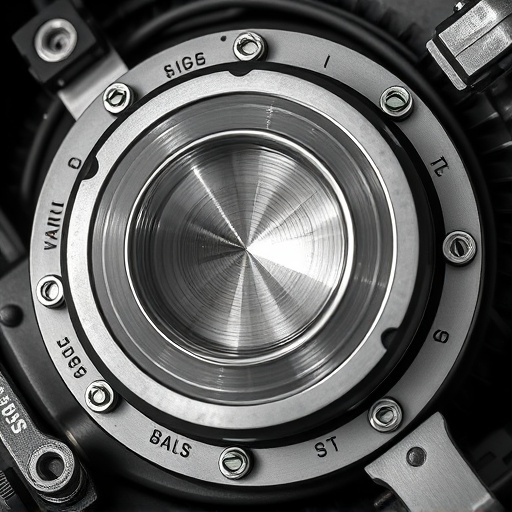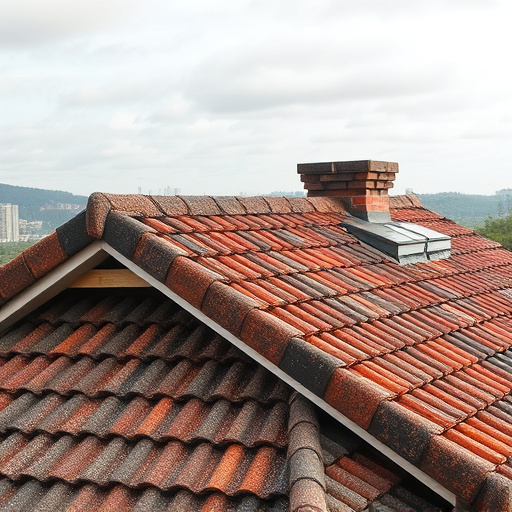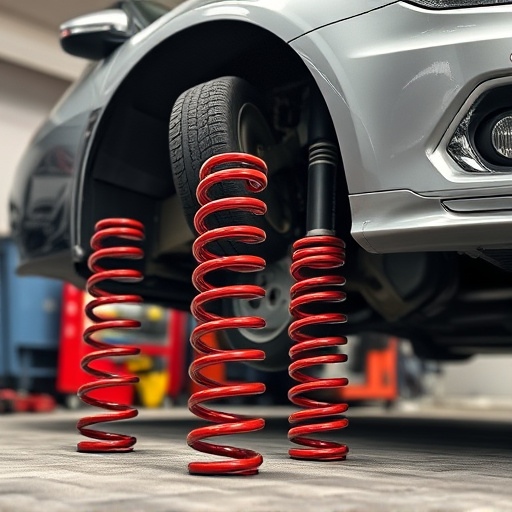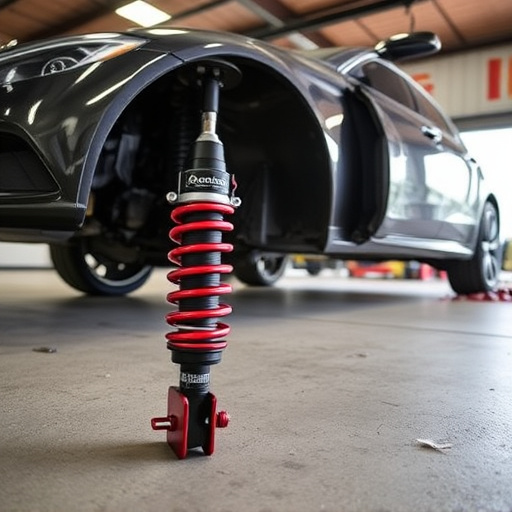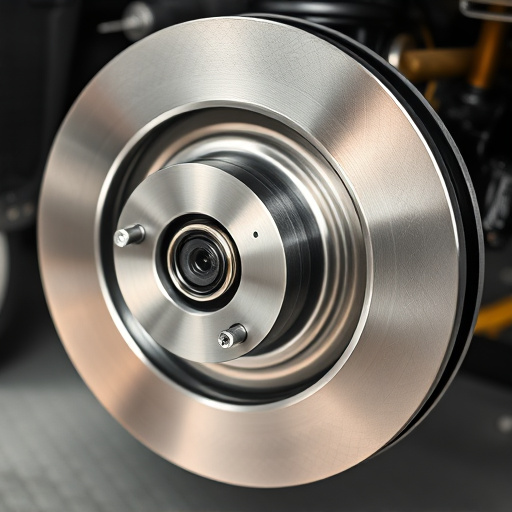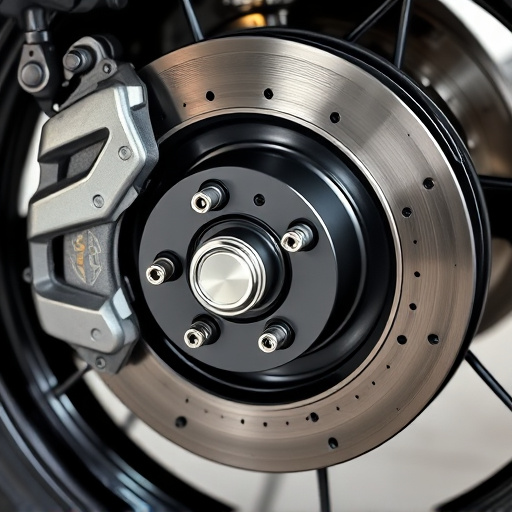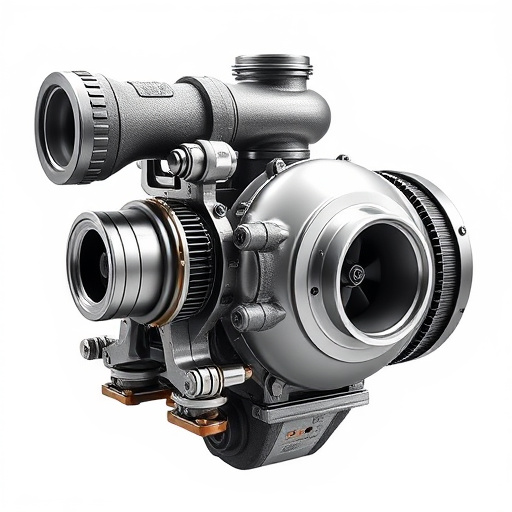A clean Mass Air Flow (MAF) sensor is paramount for engine health, ensuring optimal performance, smooth idling, and accurate air-fuel ratios. Contamination from dust, debris, or carbon buildup leads to rough idling and potential engine damage. Regular maintenance, including cleaning or replacing the MAF sensor and checking intake components, prevents these issues. While performance upgrades like coilover kits enhance driving experience, they don't address MAF sensor problems directly; comprehensive diagnostics considering related systems are essential.
Can a dirty mass air flow (MAF) sensor cause rough idling? Yes, it can. The MAF sensor plays a crucial role in engine performance by measuring incoming air volume, which is essential for optimal combustion. When contaminated, it can lead to inaccurate readings, affecting idle speed and causing rough running. This article delves into the understanding of MAF sensors, explores the impact of a dirty sensor on idling, and provides diagnosis and resolution strategies for addressing this common automotive issue.
- Understanding Mass Air Flow Sensors and Their Role in Engine Performance
- The Impact of a Dirty Mass Air Flow Sensor on Idling
- Diagnosis and Resolution: Strategies for Addressing Rough Idling Due to a Contaminated MAF Sensor
Understanding Mass Air Flow Sensors and Their Role in Engine Performance

The mass air flow (MAF) sensor is a critical component in modern engines, playing a pivotal role in optimal engine performance and efficiency. This sensor measures the amount of air entering the engine, providing real-time data to the engine control unit (ECU). The ECU uses this information to adjust the fuel injection and ignition timing, ensuring the engine runs smoothly and efficiently. A clean and functioning MAF sensor is essential for maintaining consistent idling, smooth power delivery, and overall engine health.
A dirty or clogged MAF sensor can disrupt this delicate balance, leading to various issues including rough idling. When the sensor becomes contaminated with dust, debris, or carbon buildup from a poorly maintained vehicle, its accuracy suffers. This results in incorrect air-fuel ratios, causing the engine to stall, hesitate, or run erratically at low RPMs. Unlike performance brakes or suspension kits that enhance different aspects of a vehicle’s capabilities, a clean MAF sensor is fundamental for ensuring smooth operation and preventing potential damage from rough idling caused by other issues like a cat back exhaust system.
The Impact of a Dirty Mass Air Flow Sensor on Idling

A dirty or clogged mass air flow (MAF) sensor can significantly impact an engine’s performance and stability, leading to rough idling. The MAF sensor plays a critical role in measuring the amount of air entering the engine, which is essential for optimal combustion. When it becomes contaminated with dirt, dust, or debris from worn-out intake components, its readings become inaccurate. This misreading of air flow can cause the engine management system to incorrectly adjust fuel injection, resulting in an unstable idle speed and potential stalling.
Over time, a buildup of contaminants on the MAF sensor can alter its sensitivity, leading to erratic behavior during idling. This issue is particularly noticeable in vehicles with high-performance air filters or coilover kits, where optimal airflow is already a delicate balance. Regular maintenance, including cleaning or replacing the MAF sensor and checking intake components, is crucial to ensuring smooth idling and maintaining overall engine health.
Diagnosis and Resolution: Strategies for Addressing Rough Idling Due to a Contaminated MAF Sensor

A contaminated or dirty Mass Air Flow (MAF) sensor can indeed be a culprit behind rough idling in vehicles. To diagnose this issue, start by inspecting the sensor for any buildup of dirt, debris, or carbon deposits. A visual examination might reveal visible contamination, while in other cases, advanced diagnostic tools can identify unusual readings from the MAF sensor. If found contaminated, cleaning the sensor is a straightforward solution. Use specialized cleaner solutions and follow manufacturer guidelines to ensure effective decontamination without damaging the sensor.
For more severe cases where the sensor is severely damaged or malfunctioning, replacement might be necessary. When addressing rough idling, it’s also essential to consider other related systems. For instance, poor air quality can impact engine performance, so ensuring optimal airflow and filter condition is crucial. Additionally, checking for issues with fuel delivery and ignition timing will provide a comprehensive diagnostic approach. Upgrading to high-performance parts like coilover kits or investing in superior brake components (including performance brakes) might enhance overall vehicle performance and smoothness during idling, but they aren’t direct solutions to MAF sensor problems.
A dirty mass air flow (MAF) sensor can significantly impact engine performance, particularly during idling. The MAF sensor plays a crucial role in measuring air intake, and when contaminated, it can cause rough idling, reduced fuel efficiency, and even engine stalling. By understanding the function of these sensors and the effects of dirt or debris buildup, vehicle owners can address this issue effectively. Regular maintenance and timely replacement are key strategies to prevent such problems, ensuring a smoother driving experience.


